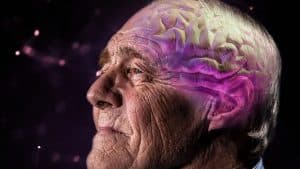As Alzheimer’s and other forms of dementia progress, patients lose more of their memories. From details of friends and family members to the practicalities of everyday life, this can be devastating. You can’t just replace those memories, but with modern technology, there may be other ways to keep people connected to their pasts, their loved ones and the world around them (https://longevity.technology/lifestyle/new-smartphone-app-for-alzheimers-sufferers-improves-healthspan-by-replacing-lost-memories/).
One example is the “How Do I?” app, which was awarded £100,000 of funding by British-based charity the Alzheimer’s Society in 2019. This wasn’t an app manufactured in the lofty ivory tower of a lab; instead, it was the result of crowdsourcing. Members of the public with different experiences with dementia were all able to express their needs and opinions.
Modern technology can be wonderful, but it’s often complex and confusing for the elderly, especially if they’re experiencing cognitive deterioration. Small touchscreens in particular aren’t great if your vision and mobility are poor. How do I? aims to be accessible, to allow people with dementia to live independently for longer, and to give family and friends a more effective way to help.
It does this by giving other people, including family, friends and carers, the ability to record important information. This may include instructions and checklists for carrying out everyday tasks (making tea, using the washing machine, taking medication), and it may be photographs or videos with names and details noted to explain forgotten contexts.
Users can record their own videos designed to meet the specific needs of unique situations. These videos can easily be rewound or fast-forwarded as necessary. Add stickers to regular household items and technology, and you can scan them with the app-loaded device to automatically open the video explaining how they work.
The app has been through its first stages of trials, with preliminary safety data being collected. More testing is needed, working closely with the people most effected by dementia, including the people with the condition as well as their loved ones and carers (https://www.alzheimers.org.uk/dementia-professionals/dementia-experience-toolkit/real-life-examples/supporting-inclusion/developing-dementia-friendly-phone-app-how-do-i).
Improved longevity hasn’t always been an unabashedly good thing. When people live longer, they are more at risk of developing the diseases of aging, and that includes many forms of dementia. If we want people to have a high quality of life in their old age, we’re going to need to find more innovative ways to use modern technology.




